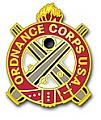These are the bitter fruits of the West's -- and in particular the United States' -- mistaken policies toward Russia since the end of the Cold War. Instead of treating Moscow magnanimously, as historian Richard Pipes once urged, the West declared victory.
The resumption of long-range strategic bomber flights that will patrol areas bordering European and U.S. airspace. In short, Russia is back as a global player, and it is no longer a starry-eyed admirer of the United States.
The cost of NATO expansion is that Russia has been lost in the medium term -- and perhaps in the long term as well -- as a powerful, committed democracy and Western ally. Moreover, the West has pushed Russia closer to China and Iran.
If these are the costs of NATO expansion, what are the advantages? Few, if any. The alliance received from its new member states: a few thousand additional troops that are stationed in Afghanistan and Iraq, a three-jet Latvian air force and five Estonian nurses. Compare these benefits to Russia's vast military and intelligence resources and experience -- particularly in Afghanistan. Moreover, Moscow has helped to track down global jihadists, prevent the proliferation of weapons and materials of mass destruction and reconstruct Afghanistan. As a true ally, Russia could contribute much more to the Western alliance than the small new NATO members.
All opinion polls now show that a plurality or majority of Russians regard the United States as the greatest threat to Russia and the world. Putin has repeatedly decried the U.S. impetus for a "unipolar" international structure -- which is to say, global hegemony.
The Russian elite's consensus is even harsher. Alexander Solzhenitsyn recently said the United States seeks to encircle and weaken Russia. This statement is highly symbolic, coming from the esteemed writer who once took refuge in the United States as a political refugee from the Soviet state. It also underscores how cold U.S.-Russian relations have become.
One hopes the next U.S. administration will not repeat Clinton and Bush's mistakes of insulting and underestimating Moscow. Even in the best of circumstances, the next U.S. president and his or her Western allies will face the daunting task of piercing through the unfortunate and unforgiving perceptual lens through which resurgent Moscow views the West, especially Washington.







Bookmarks